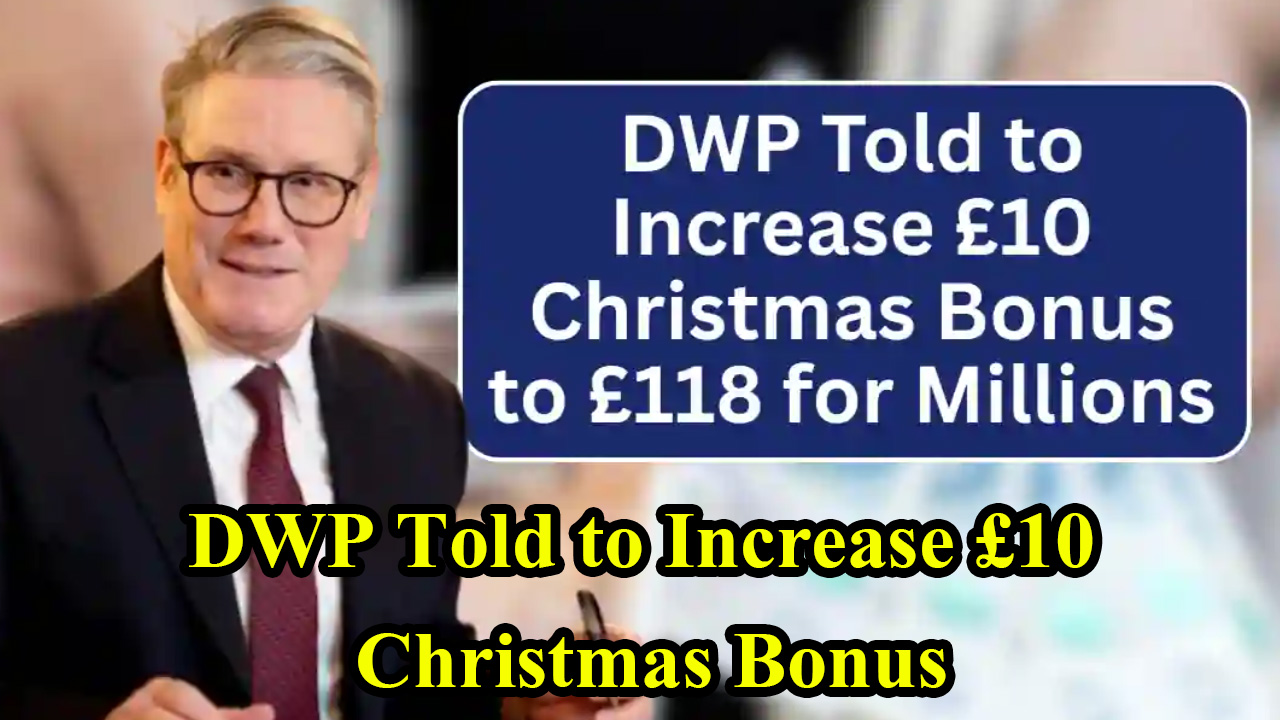Every year, just before the festive season, the UK Department for Work and Pensions (DWP) gives pensioners and eligible benefit recipients a small financial boost, called the Christmas bonus. It was first introduced in 1972. This one-off £10 payment is meant to give pensioners and certain benefit recipients a little help during the holidays.
But in 2025, the bonus is the same £10 as it was five decades ago, despite inflation, the cost of living and energy bills constantly rising. Critics now say it is merely symbolic and are calling for it to be increased in line with modern economic conditions.
HMRC to Withhold Child Benefit from 214,000 Eligible Households
Why campaigners want a bigger bonus
Charities, social workers and MPs say the current £10 bonus no longer serves its purpose. In 1972, £10 was enough to pay for a week’s rations, household essentials or festive sweets. Today it only helps marginally.
Studies show that if the bonus was adjusted for inflation, it would be worth around £118 today. Supporters say it would be a real help for pensioners and low-income households, such as with heating bills, food or Christmas festivities.
Who is eligible for the Christmas bonus?
The DWP automatically pays the bonus in the first full week of December to people receiving the following benefits:
- State Pension recipients
- Disability Living Allowance claimants
- Personal Independence Payment claimants
- Carer’s Allowance recipients
- Attendance Allowance claimants
- Income-based Employment and Support Allowance
- War pensioners and selected Armed Forces Benefit
The payment is tax-free, doesn’t affect other benefits and is credited into a regular pension or benefit account.
Why the £10 bonus has remained at £10 for the past 50 years
The Christmas bonus is not as flexible as other benefits; it is set in law as a fixed amount. Increasing it requires parliamentary approval and additional treasury costs. Governments have always seen it as a “seasonal gesture”, not an essential benefit, so it has not been increased despite inflation and rising living costs.
New UK Minimum Wage Rise Confirmed for September 2025 – Check If You Qualify
The cost of increasing the bonus
If the bonus were to be increased to £118 and paid to the estimated 15 million eligible beneficiaries, it would cost the government around £1.7 billion. Campaigners say the cost is affordable and would directly benefit vulnerable groups. Opponents say the public finances and other priorities make this difficult.
The views of pensioners and beneficiaries
Many pensioners consider the £10 bonus to be outrageous. An Age UK survey found more than 70% wanted an increase, while almost half said the payment would be almost unnoticeable.
For those struggling with everyday expenses, a £118 bonus could help pay for a week’s rations, heating costs or a family celebration, providing a real boost over the festive period.
Political pressure and prospects for 2025
MPs from several parties have raised the issue in Parliament and petitions demanding an increase have gathered thousands of signatures. The Labour opposition accuses the Government of ignoring pensioner poverty, while some Conservative MPs believe the £10 bonus now looks outdated.
Currently, the DWP has no plans to increase it. Experts suggest increasing it to £25 or £50 could be a compromise, modernising the bonus but not putting too much of a strain on the Treasury.
The wider context
- The Christmas bonus debate comes amid wider discussions over support for pensioners:
- The triple lock state pension is rising steadily, but questions are being raised about its long-term sustainability.
- Winter fuel payments are being reviewed to better target them.
- Recent cost of living payments showed that urgent support can be delivered quickly.
- In these circumstances dropping the £10 bonus no longer seems in line with modern financial realities.
Free TV Licence 2025: UK Government Expands Benefit to All Pensioners
Polling
Polling shows people are in support of increasing the bonus. Pensioners who have contributed through taxes throughout their lives should be recognised. Younger beneficiaries see it as a fairness issue, as the government often spends on other areas rather than direct support for vulnerable groups.
What happens next?
Unless the government announces changes in the Autumn Statement or Budget, the 2025 Christmas bonus will remain at £10. However, campaigners will keep up the pressure to have it updated.
Key points
- The £10 Christmas bonus has been unchanged since 1972.
- According to inflation it should be worth around £118.
- Millions of pensioners and beneficiaries receive it automatically.
- Campaigners are calling for it to be increased in line with the cost of modern living.
- The government cites costs and policy as reasons for keeping it stable.
Conclusion
The Christmas bonus is not just a seasonal gesture—it shows the importance of pensioners and low-income households in society. Where £10 once provided real help, today it is mostly symbolic. Increasing it in line with inflation could provide real relief at the festive period, but whether the government is prepared to spend the billions is uncertain.
